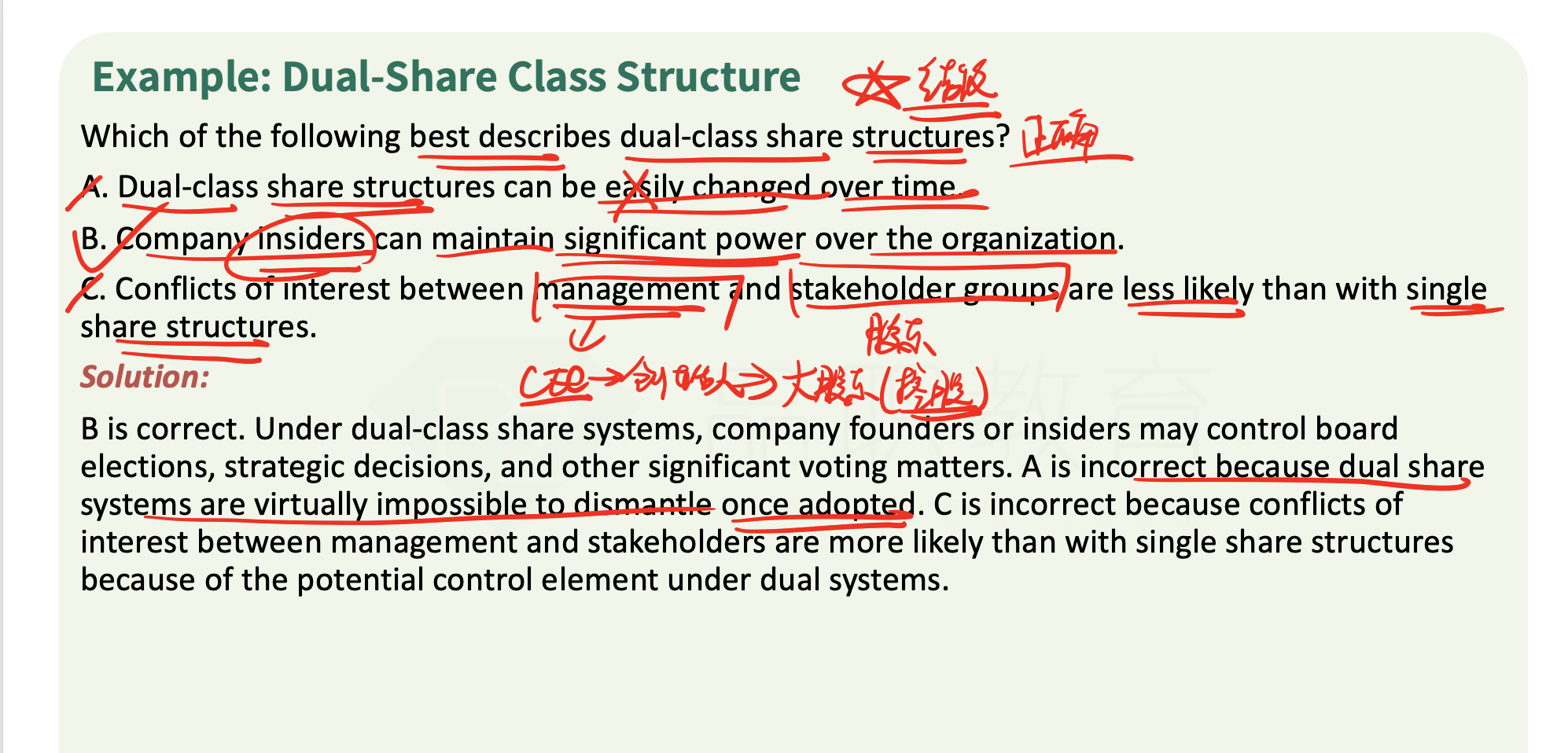Proponents of dual-class voting structures believe that the benefits to public shareholders most likely include:
- reducing conflicts of interest between management and those with economic interests.
- trading values that are typically at a slight premium to single-class peers.
- promoting company stability by insulating management from short-term investor pressures.
Solution
C is correct. Proponents of dual-class structures argue that management is better able to make long-term strategic investments that may have negative short-term implications when control is wielded by a small group of shareholders with superior voting rights.
A is incorrect. Because of their reduced ability to influence management, shareholders with economic but not voting interest are more likely to view management’s interests in conflict with their own.
B is incorrect. Entities with multiple voting structures tend to trade at a discount to their peers, not a premium.




